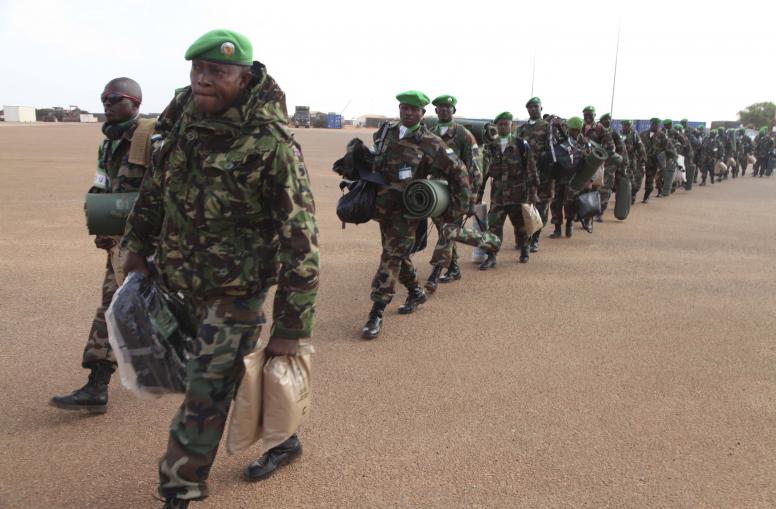African Union’s Somalia mission hit by EU funding cut

The African Union (AU) has criticised the EU’s decision to cut funding for its peace-keeping mission in Somalia by 20% at a time when it is entrenched in a deadly battle with terrorist militants.
The AU has been sending task forces to Somalia for the last nine years to combat al Qaeda’s affiliate group in the country, Al Shabaab, in an attempt to liberate the region. Currently, 22,000 troops are deployed there under the mandate of the African Union Mission in Somalia (AMISOM).
The European Union bears much of the costs of the mission, which is composed of troops seconded from the military forces of Kenya, Ethiopia, Uganda and Burundi. AMISOM soldiers are supported with some $200 million a year by the EU following a European Parliament Resolution. The EU is the biggest donor involved in the peacekeeping mission.
However, according to the AU, Brussels intends to cut this support by 20%. At a meeting held in Addis Ababa at the end of last month, AU leaders expressed their concerns about what impact a drop-off in funding could have.
“As you are all aware the European Union made the decision to cut the allowances to the uniformed personnel of the Mission by 20%, starting in January 2016,” said Ambassador Francisco Caetano José Madeira, head of AMISOM.
“This measure will no doubt affect the personnel who are making the ultimate sacrifice in service of Africa. Especially now, when more is expected of AMISOM. It is my view that we should pursue various funding mechanisms to sustain the current support for AMISOM,” he added.
The Al-Shabaab militant group has been active in Somalia for a number of years and wants to establish an Islamic theocracy. They are believed to be behind a suicide bombing that downed an airliner last week. AMISOM is the only peacekeeping mission in Somalia to currently support the internationally-recognised government, but the EU’s decision to cut its funding will mean that soldiers’ pay will drop from $828 a month to less than $165.
Brussels’ penny-pinching comes at a time when Al-Shabaab forces are rallying and looking to take strategic positions in Somalian cities. Their latest offensive against AMISOM forces was launched in El Ade, near the Kenyan border, resulting in more than 100 casualties. The militants also took several hostages. The group also captured the historic city of Marka just three days ago.
“We have to understand that war is expensive. The war on terror has moved to Africa and it is here to stay. That is why we must be ready to pay its costs,” Professor Derrick Muasya, a researcher and expert in sub-Saharan conflicts, told EurActiv.
“It’s a difficult balancing act for the African Union, which has a lot to do if it is to stop the spread of terrorism and it has only limited resources to do it with. Therefore, the AU is going to have to chase other resources to fund this war, which is going to last a long time,” Muasya said.
According to Erastus Mwencha, Deputy Chairperson of the AU, the war in Somalia costs the governments behind the mission $45 million a month.
“It would be even more costly if the AU withdrew its troops from Somalia. This would mean that Al-Shabaab had won and terror would spread unchecked. The 20% cut in EU funding forces the AU to develop a serious and long-term funding strategy, with the aim of bringing this war to a more cost-effective and swift resolution,” Professor Muasya added.
Euroactive